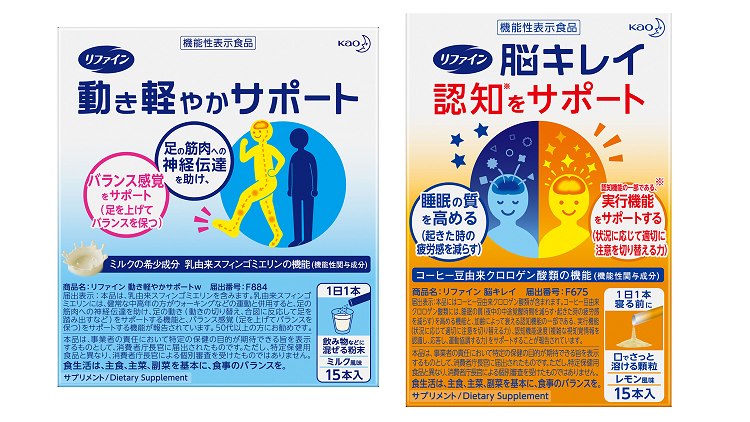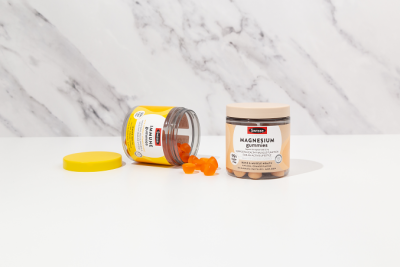Healthy ageing: Kao launches FFCs for mobility and cognitive function in new format and claims

The two new products, launched under the Refine (リファイン) brand, were first made available in 274 stores from the Sugi Pharmacy chain on April 4.
This is not the first time that Kao has launched healthy ageing related products under the Refine brand – which it said was aimed to promote a society where “longevity is enjoyable”.
It previously launched a tablet product which claimed to support the lower limbs movements in people who are 50 and above.
The product, which contained 38g of milk-derived sphingomyelin as the active ingredient per tablet, was first notified to the Consumer Affairs Agency (CAA) in September 2017 but was withdrawn from the market in June 2020, according to information from the FFCs database Plusaid.
The company has now relaunched the product which is made with the similar formula – but now in a different format and a different set of claims.
Mobility FFC
Relaunched as a powder to be drank with water, the new product makes more specific function claims.
It is permitted to claim “milk-derived sphingomyelin helps healthy middle-aged and older people to transmit nerves to the muscles of the foot when consumed in combination with exercises such as walking. [It also] support the sense of balance. Recommended for people in their 50s and above.”
Sphingomyelin is a type of sphingolipid – this lipid is found abundantly in cellular membranes.
Its hydrolysis releases ceramide and phosphocholine.
A study by Kao found that the supplementation of milk-derived sphingomyelin, together with habitual exercise, could improve physical performance, such as agility in middle-aged Japanese.
The pilot randomised, double-blind, placebo-controlled trial involved 42 subjects.
The intervention group took tablets containing milk fat globule membrane (MFGM) – which consisted of 3.81 per cent of sphingomyelin, while the placebo group took tablets containing whole milk powder for 10 weeks.
At the same time, they were engaged in an exercise training program, which consisted of walking and cycling, twice per week.
The findings, which were published in SpringerPlus, reported that the intervention group had better results when performing a side step – a movement that required agility and coordination in the lower limbs.
“The beneficial effects of MFGM plus exercise treatment may be due to the increase in the motor unit maintenance of fast-twitch muscle fibers,” the researchers said.
Cognitive health FFC
On the other hand, this is the first time that Kao has launched a FFC for cognitive health.
Containing the company’s signature coffee bean-derived chlorogenic acids used in its product for improving blood flow and skin moisture and for reducing visceral fat and blood pressure, the new cognitive health FFC claims to improve sleep quality and support executive function.
This is a granule product that contained in a sachet.
In a 16-week RCT, it was found that chlorogenic acid supplementation could improve motor speed, psychomotor speed, and the executive function as compared to the placebo group.
During the study period, the 38 participants ingested either a beverage added with 300mg of chlorogenic acids, or a placebo beverage daily 30 to 60 minutes before bedtime.
“The results indicated that CGAs improve some cognitive functions, including attention as well as motor speed, which may facilitate efficient performance of complex tasks.
“Blood concentrations of TTR and ApoA1—proteins whose reduced levels are markers of early-stage cognitive decline—increased after the CGA treatment, which might reflect the improved cognitive functions observed in the neuropsychological tests,” the researchers said in the study published in Nutrients.







